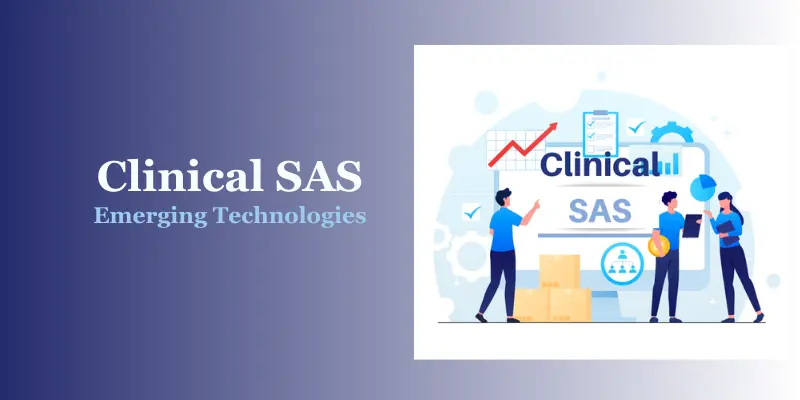
Clinical SAS (Statistical Analysis System) plays a pivotal role in data management, analysis, and reporting in the rapidly evolving landscape of healthcare and pharmaceuticals. As technology continues to advance, new tools and techniques are constantly emerging to enhance Clinical SAS’s capabilities. In this blog, we will explore some of the emerging technologies that are reshaping the field of Clinical SAS. For those seeking to enhance their skills and stay updated with these advancements, Clinical SAS Training in Chennai offered by FITA Academy provides valuable insights and practical knowledge to navigate the evolving landscape of healthcare analytics.
Introduction to Clinical SAS and Emerging Technologies
Clinical SAS is used in trials and research to analyze patient outcomes, drug efficacy, and safety data. With the integration of emerging technologies, its becoming more efficient, accurate, and adaptable to the evolving needs of the healthcare industry.
Artificial Intelligence and Machine Learning
Artificial Intelligence (AI) and Machine Learning (ML) are revolutionizing Clinical SAS by automating repetitive tasks, identifying patterns in large datasets, and predicting outcomes. AI-powered algorithms can analyze complex clinical data more quickly and accurately than traditional methods, enabling researchers to gain insights and make informed decisions faster.
Natural Language Processing (NLP)
Natural Language Processing (NLP) technology allows to extract of valuable information from unstructured notes, physician reports, and medical literature. By converting text data into structured formats, NLP enables researchers to analyze and interpret clinical data more effectively, leading to better decision-making in healthcare settings. For those looking to harness the power of NLP within Clinical SAS, specialized training programs such as Clinical SAS Training can provide the necessary skills and expertise to leverage this technology effectively in healthcare analytics.
Blockchain Technology
Blockchain technology is increasingly being adopted in Clinical SAS to enhance data security, transparency, and integrity. By creating decentralized and immutable ledgers, blockchain ensures that clinical trial data remains tamper-proof and traceable, thereby increasing trust and reliability in the research process.
Wearable Devices and IoT Integration
The integration of wearable devices and Internet of Things (IoT) technology with allows for real-time monitoring of patient health data. From fitness trackers to medical implants, wearable devices collect valuable physiological data that can be seamlessly integrated into analysis and interpretation.
Cloud Computing
Cloud computing offers SAS scalability, flexibility, and cost-effectiveness by providing on-demand access to computing resources and storage. With cloud-based solutions, researchers can collaborate on projects, analyze large datasets, and deploy models more efficiently, regardless of geographical location.
The field is continuously evolving, driven by technological advancements and the growing demands of the healthcare industry. Emerging technologies such as artificial intelligence, natural language processing, blockchain, wearable devices, IoT, and cloud computing are transforming how clinical data is collected, analyzed, and interpreted. For those seeking to deepen their understanding and proficiency in Clinical SAS, enrolling in a Coaching Institute in Chennai can provide valuable guidance and hands-on training to navigate the complexities of these emerging technologies.
